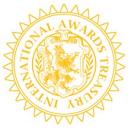 Spain’s state lottery commission, the Loterías y Apuestas del Estado runs many legitimate lotteries. The world’s biggest and most famous is the Sorteo de Navidad, nicknamed El Gordo. However, this should not be confused with El Gordo de la Primitiva, another famous Spanish lottery.
Spain’s state lottery commission, the Loterías y Apuestas del Estado runs many legitimate lotteries. The world’s biggest and most famous is the Sorteo de Navidad, nicknamed El Gordo. However, this should not be confused with El Gordo de la Primitiva, another famous Spanish lottery.
Although not as big as the Sorteo, it has many large cash payouts and is drawn every Sunday. El Gordo means the fat one and many Spanish lotteries will have a fat one or a big cash prize. El Gordo de la Primitiva tickets have two sets of numbers on a grid. A ticket buyer must pick five numbers from the first grid which number 1-54, and then one number from the second, which numbers from 1-9.
Spain loves its lotteries and the tickets can be purchased at any of eleven thousand locations. Each ticket costs €1.50. Some of the other national lotteries are La Loteria Nacional played every Thursday and Saturday; the Bonoloto, drawn every Monday, Tuesday, Wednesday and Friday; and la Primitiva, which is drawn every Thursday and Saturday.
Anyone can enter a Spanish lottery but the only restriction is that your winnings must stay in Spain or you will pay taxes upon entering another country. These lotteries are endorsed by the government but if they’re run by other than Loterías y Apuestas del Estado they may be scams.
El Gordo de la Primitiva http://onlae.terra.es/loterias.htm If googled, hit the translate button first for English.
